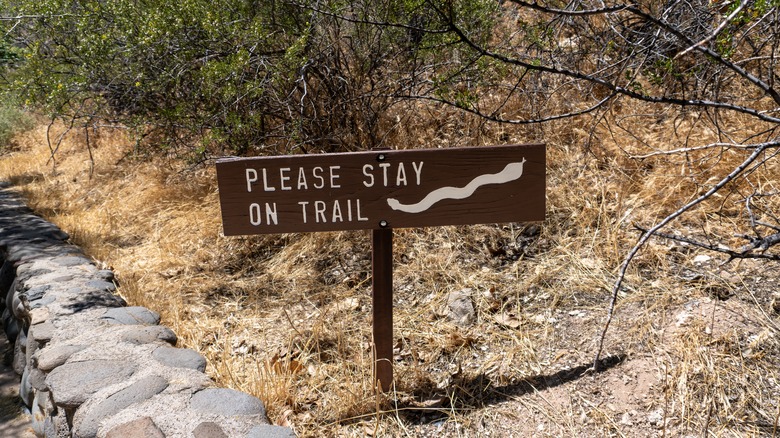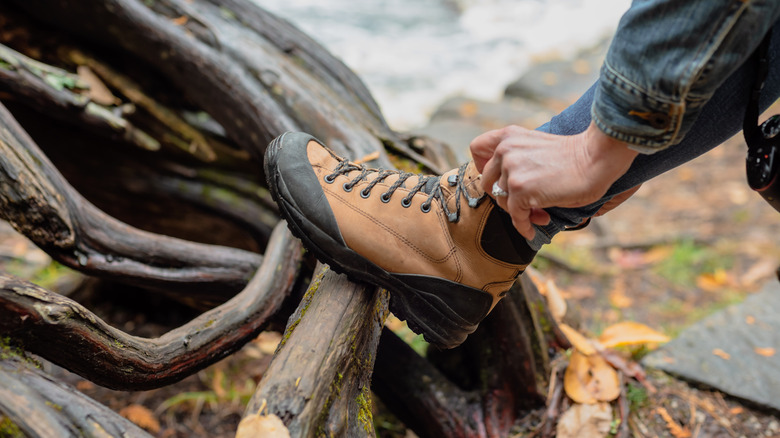How to stay safe in snake territory
Snakes have a varied diet, including insects, rodents, and birds. If you leave food out near the campsite and it attracts their usual prey, you can bet that snakes won’t be far behind. Always make sure to store your food properly in airtight containers, locked coolers, or in the car with the windows rolled up. Before you leave, clean up any spills and remove your trash in a sealed plastic bag at designated disposal areas to protect future campers.
With their cold-blooded nature, snakes love cozy hideouts where they can warm-up, which could include your tent, sleeping bag, or shoes. While you’re out and about, seal your tent shut with the zipper tabs towards the top of the tent, away from the ground. The higher up, the better, as a determined critter could still poke its head through an opening near the ground. Keep your shoes inside the tent or your car. Before you put your shoes on, it doesn’t hurt to give them a good shake upside-down. While exploring the wilderness or gathering firewood, wear long pants and sturdy boots. Stay on the trails, and keep your fur babies on a leash.
What to do if you encounter a snake

EWY Media/Shutterstock
If you spot a snake in your campsite or on a trail, don’t panic. Keep a safe distance and don’t pick it up. Same goes for hurting, taunting, or threatening it. Give the snake six feet of space, so it has a chance to get away from you. Remember, like most wild animals, snakes will not go out of their way to hurt you, but they will defend themselves if necessary. They often give a warning before they strike, like a hiss, coiling tightly, or lowering their head. The rattlesnake, for example, will shake its tail to create that hallmark rattle sound. If you hear it, back away. Notify other people in the area and alert a park ranger, who can safely remove the snake if necessary.
Even with precautions, sometimes accidents happen while camping. If someone gets bitten by a snake, call 911. Prevent the bite victim from moving around, as this could hasten the process of venom spreading around the body. Most snake bites occur on the hands, feet, and ankles, per the U.S. Forest Service, so keep those body parts lower than the heart. It’s also best to abstain from any food or water until there’s some medical intervention. Even if you can’t see any symptoms of the snake bite, don’t delay in getting medical support. When it comes to snakes, it’s better to be safe than sorry. The peace of mind alone will be worth it.

